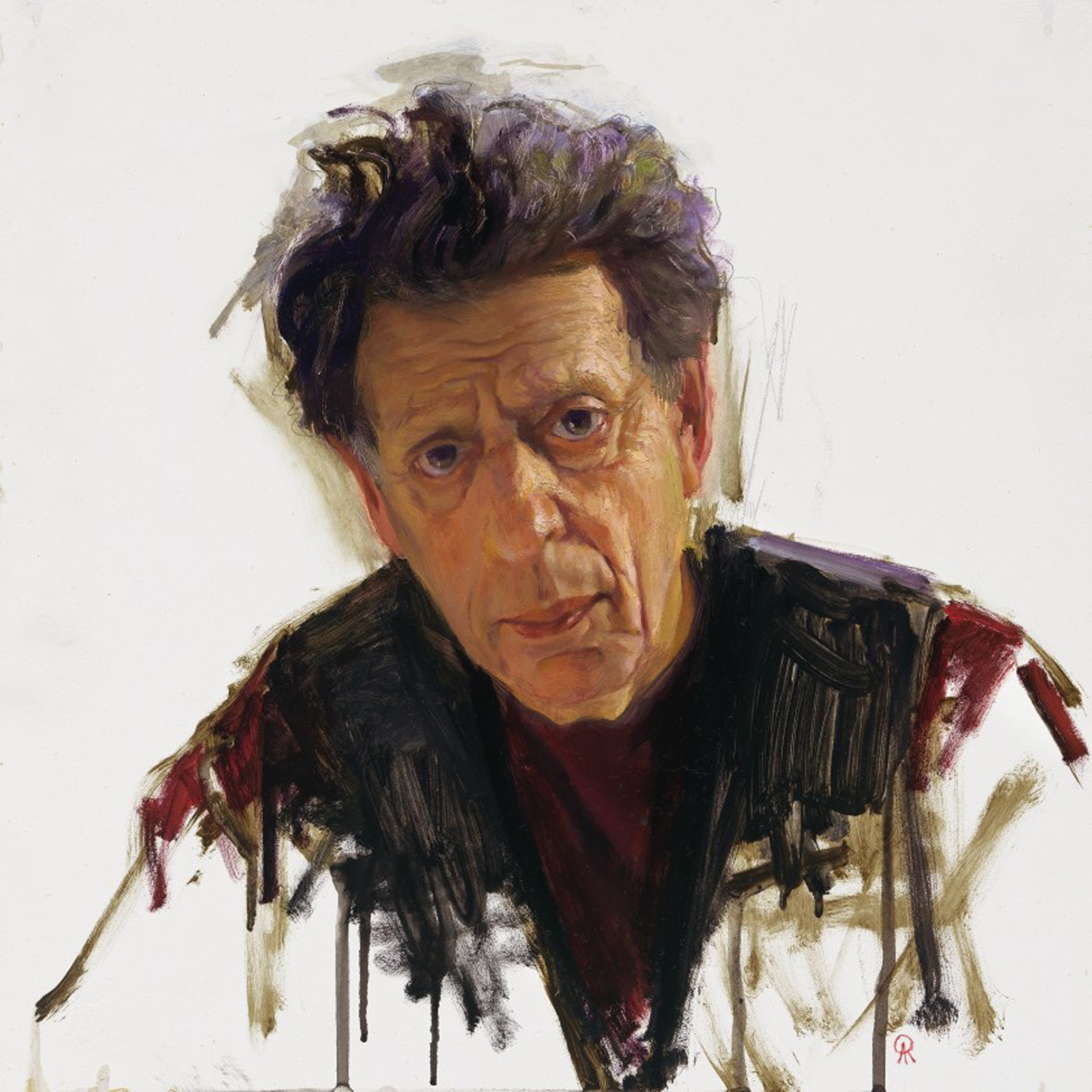Philip Glass
The 20th & 21st Centuries
Alvarezroure, CC BY-SA 4.0
Philip Glass was born in Baltimore, Maryland in 1937 to a family of Jewish immigrants from Russia. As his father owned a record store, he was exposed to music at an early age, and learned to play the flute in school. Showing early intellectual promise, he entered the University of Chicago in 1952 at the age of fifteen to study mathematics and philosophy. His interests turned more toward music, and after graduating, he enrolled at the Julliard School in New York to study composition.
In 1964, three years after completing his studies at Julliard, he travelled to Paris to study with Nadia Boulanger, the professor who had taught Aaron Copland (but had famously turned down George Gershwin.) While in Paris, he met and married a fellow American student named Jo Anne Akalaitis and had two children with her. He also collaborated with an Indian sitar virtuoso Ravi Shankar, whose eastern views of music were highly influential on Glass' outlook. Glass travelled to India the following year, met a number of Tibetan refugees and became fascinated with Buddhism and the cause of Tibetan independence from China. This interest continued and Glass even met the Dalai Lama a few years later.
Glass returned to New York in 1967 and supported himself through odd manual labor jobs, working as a taxi driver and with a moving company, while developing a unique compositional style. This style is called minimalism and foregoes elaborate melodies and formal structures, subsisting rather in simple harmonies and rhythms that undergo subtle changes throughout the piece. In 1968, he formed a septet called The Philip Glass Ensemble and recorded the groundbreaking “Music in Twelve Parts.”
Working as a plumber to support himself, Glass began composing a minimalist opera titled “Einstein on the Beach,” which premiered in 1976 and was enough of a success that he began receiving grants that allowed him to compose full time.
His personal life was a bit more turbulent, and after an affair, he and Jo Anne divorced. Glass remarried a woman named Linda Burtyk, but this also ended in divorce. Meanwhile, he began composing “portrait operas” on historical figures such as Satyagraha in 1980 and Akhnaten in 1983.
In 1991, he married again, but this third wife passed away of liver cancer the same year. By this time, Glass was already an acknowledged composer of film scores. He was nominated for an Academy Award in 1997 for “Kundun,” a film about the life of the Dalai Lama, and won a Golden Globe the following year for “The Truman Show.” He got married again a fourth time in 2001, this time to a woman thirty years younger than him. He had a son with her, but the marriage only lasted a few years. He received additional Oscar nominations for “The Hours” in 2002 and “Notes on a Scandal” in 2006, and won a Critic’s Choice Award in 2007 for “The Illusionist,” all the while continuing to compose symphonies and chamber music.
Glass is still alive and composing, touring and doing performances, and recently received a commission from the National Symphony Orchestra to compose a fifteenth symphony.
